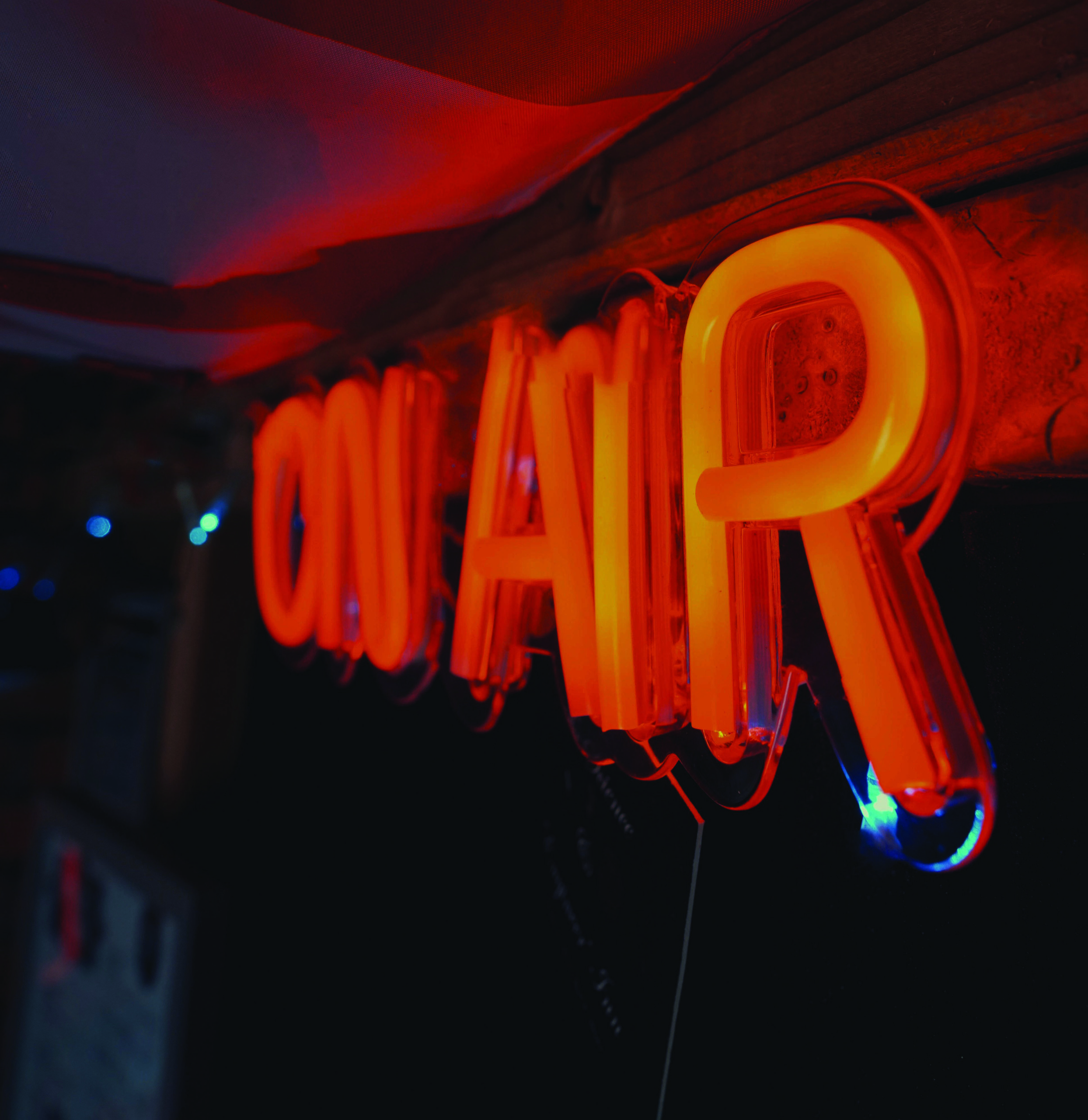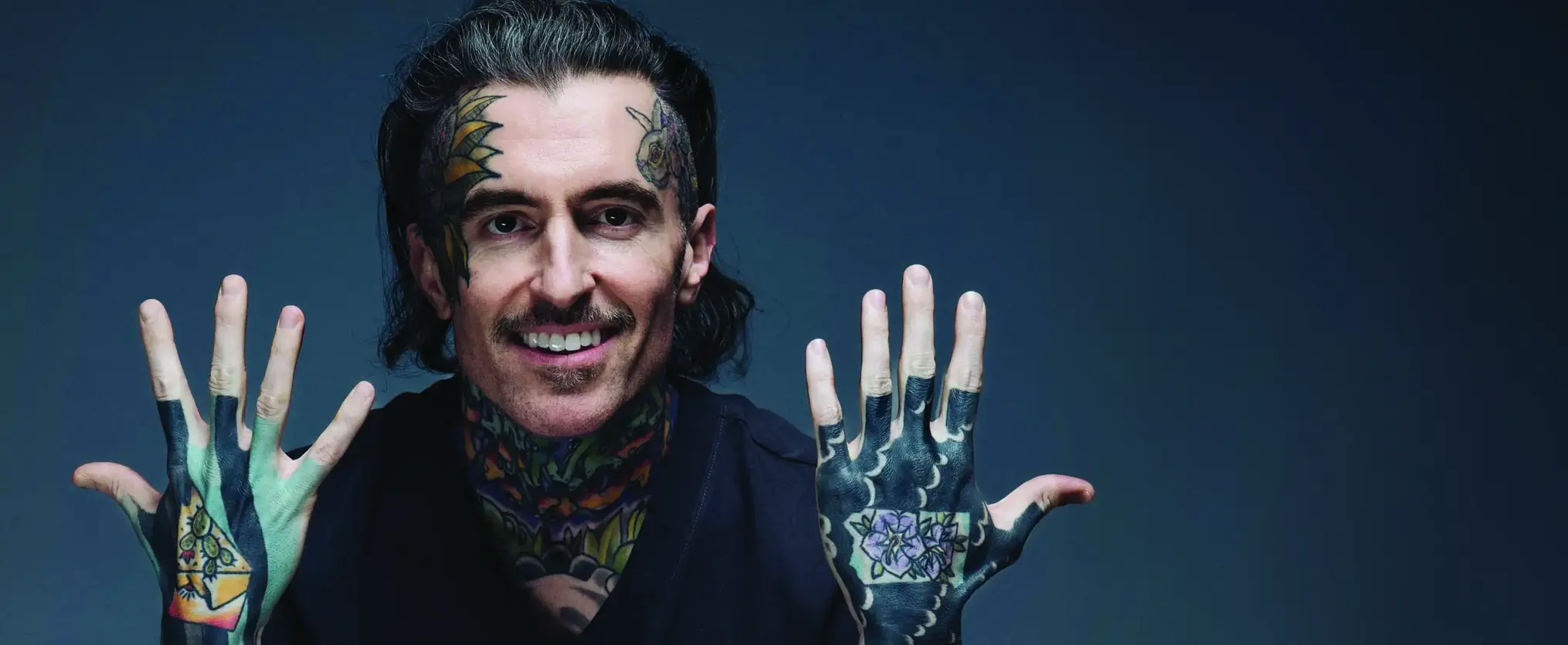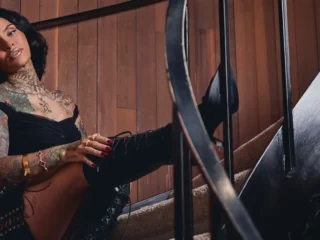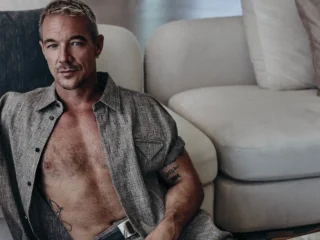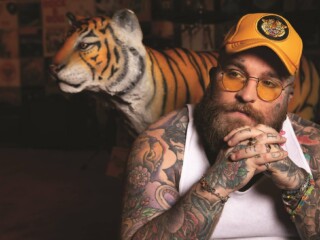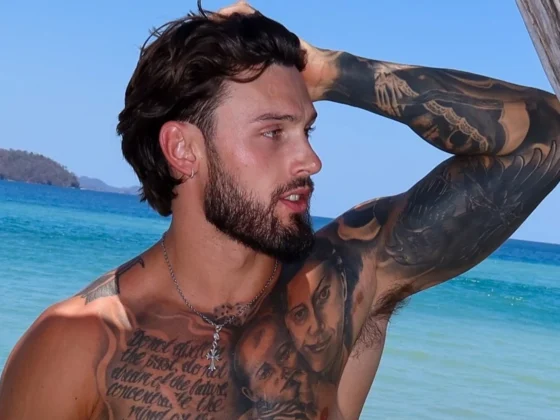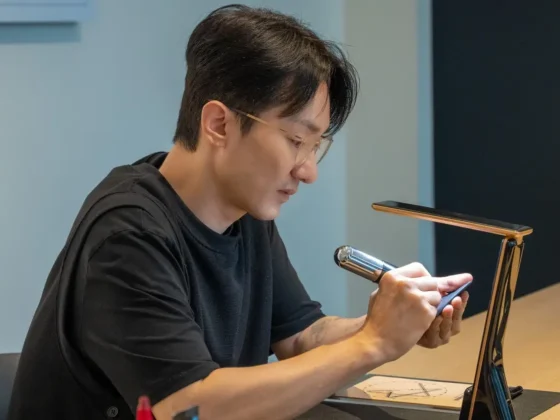Mads Wedel Kristensen
February 5th, 2025
Podcasting by Design
Explore the rise of tattoo podcasts, how they educate, connect, and impact the tattoo community, and why they’re reshaping industry conversations.
With more than 4 million podcasts worldwide, according to Buzzsprout and Google estimates, podcasts are booming. Tattoo podcasts, though growing, are still relatively new, likely only numbering in the hundreds. These podcasts range from casual shop talk to educational and even academic content, all created by people within the tattoo world. This raises the question: What does the rise of tattoo podcasts mean for the culture, community, and industry?
Four highly knowledgeable tattoo podcasters shared more about their shows with Inked Magazine and shed light on the communities that support them. But first, a brief overview of these high-caliber podcasts:
Tattoo Tales
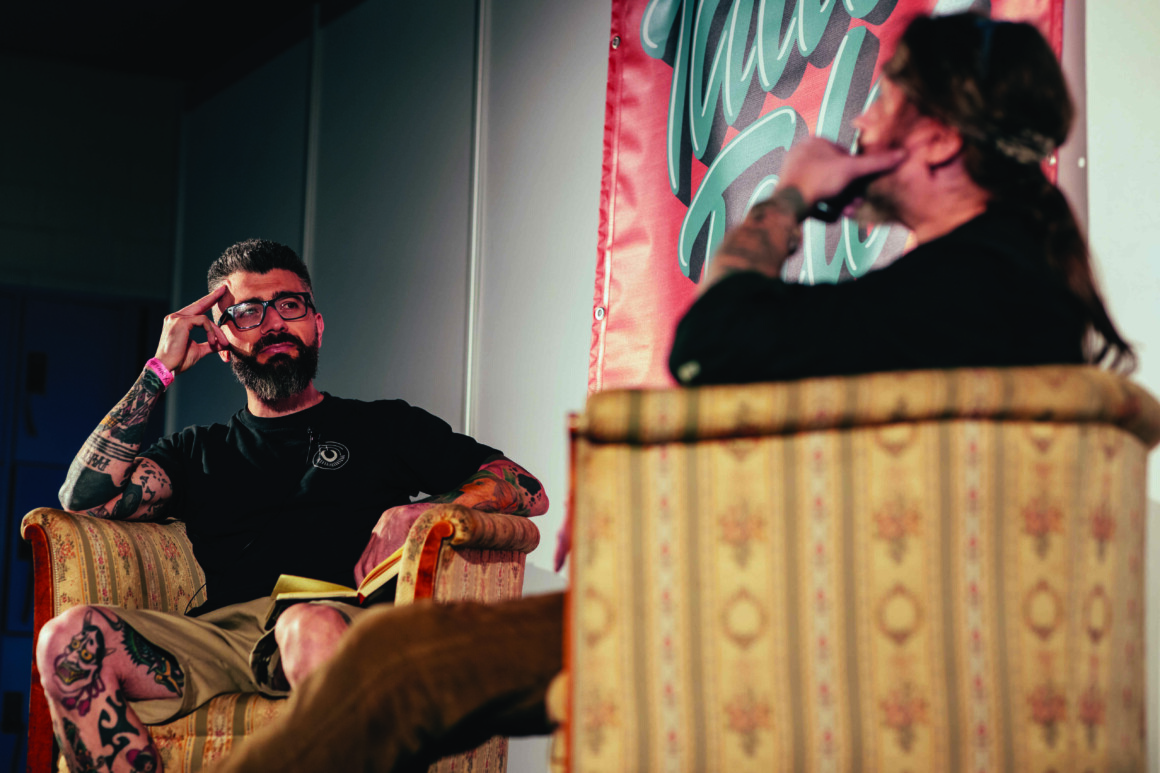
Hosted by Stef Bastian, this podcast draws on his 20-plus years of tattooing and global travels to guide listeners, especially the younger generation. Bastian shares his insights and experiences, alongside insightful guests from the tattoo world, to help improve the audience’s tattoo journey.
The Honest Tattooer Podcast
Created by tattoo legends Matt Truiano and Jon Mesa, this podcast, often counted among the best available, grew from conversations in their New York studio into a platform exploring deeper issues in tattoo culture and industry, offering nuanced insights through dynamic discussions with guests.
Eden Pod
Hosted by tattoo power couple Deanna and Colton James, this podcast aims to educate listeners on business, creativity, and craft. Their goal is to help tattoo artists improve their skills while also contributing to positive change within the tattoo culture and industry.

Beneath the Skin
Hosted by tattoo historian Dr. Matt Lodder and podcast veteran Thomas O’Mahony, this show explores the deep history of tattoos in human culture. They also challenge contemporary misconceptions, stigma, and prejudices, shedding light on tattoos’ significant role throughout history. Lodder also recently published a book titled “Tattoos: The Untold History of a Modern Art” wherein he analyzes tattooing as both a serious profession and an art form.
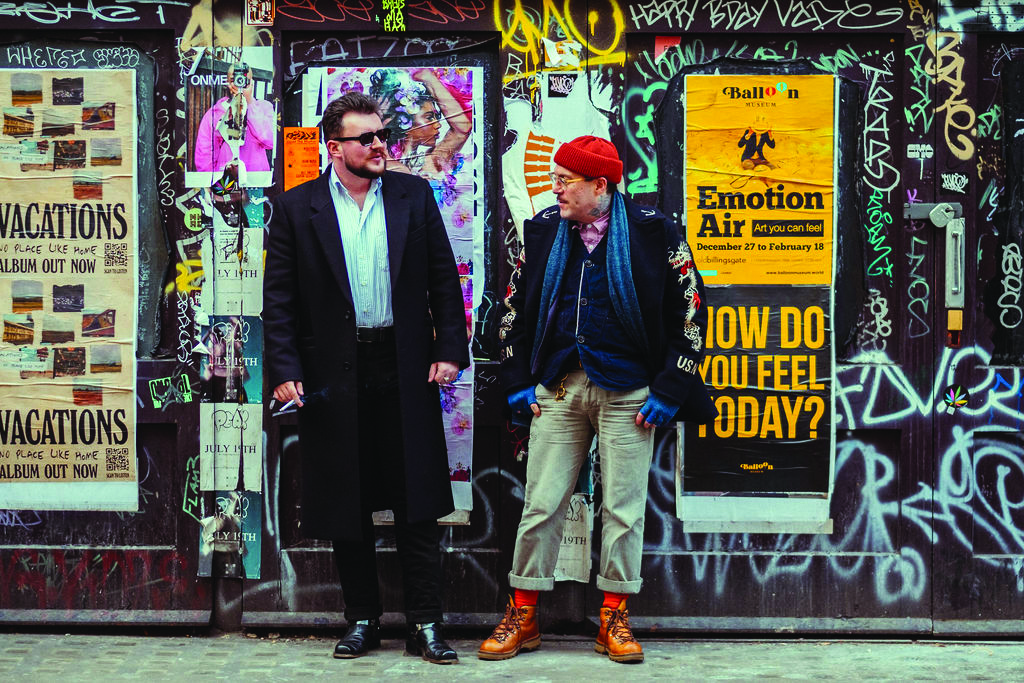
For tattoo lovers by tattoo lovers
One of the most important and interesting things about tattoo podcasts is that they are produced internally by people who are already part of the tattoo world. In comparison, many television shows with a tattoo focus are often produced by people outside of the tattoo world, and, as a result, aimed at a much broader audience. By contrast, tattoo podcasts are created by tattoo insiders who aim their content toward people who already share their love of tattoos. If a broader audience enjoys them, that is more of an added bonus.
Hosts, guests, and the audience have an unmistakable mutual respect for the art of tattooing. “One of the best feelings is when I run into someone at a convention, and they tell me how they loved an episode, or it started a good discussion with others they know,” said Bastian of his interactions at tattoo conventions, where he will also at times record episodes.
A similar sentiment was shared by the hosts of the “Honest Tattooer Podcast” and “Eden Pod,” particularly with the “Eden Pod” hosts who say they want to create a community and leave the industry better than they found it. Deanna and Colton also recognized through audience interactions, that their podcast might, indeed, also help people not feel as alone out there, as they may recognize that people they look up to in the industry have gone through similar stuff to themselves. It is this internal production, based on shared experiences and love of tattooing, that creates this heightened sense of a united tattoo community, even across borders.
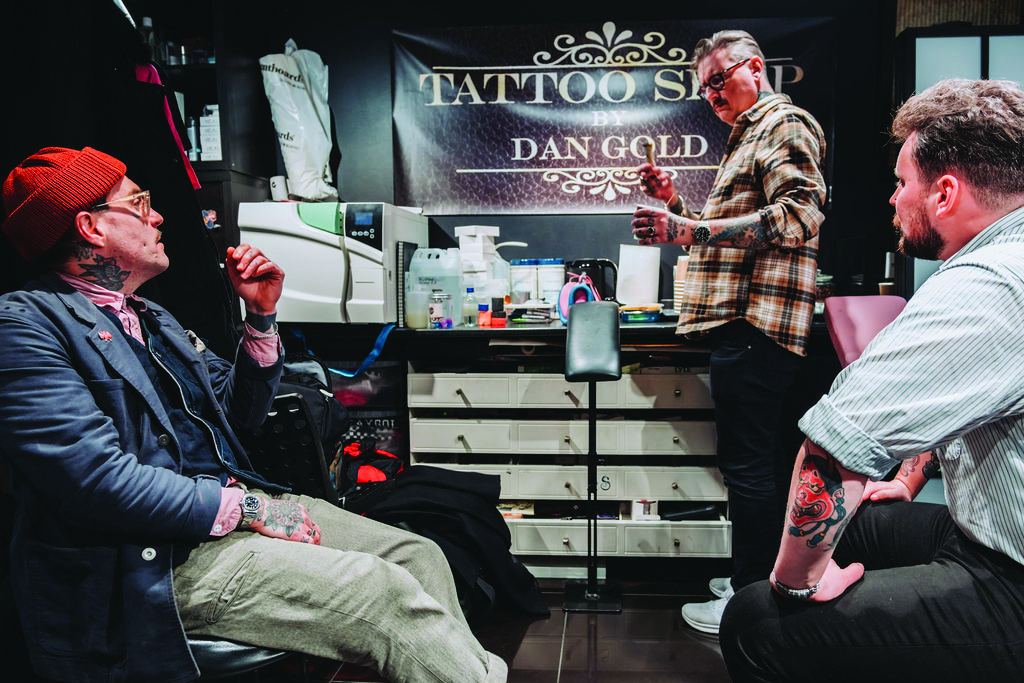
Connected Communities
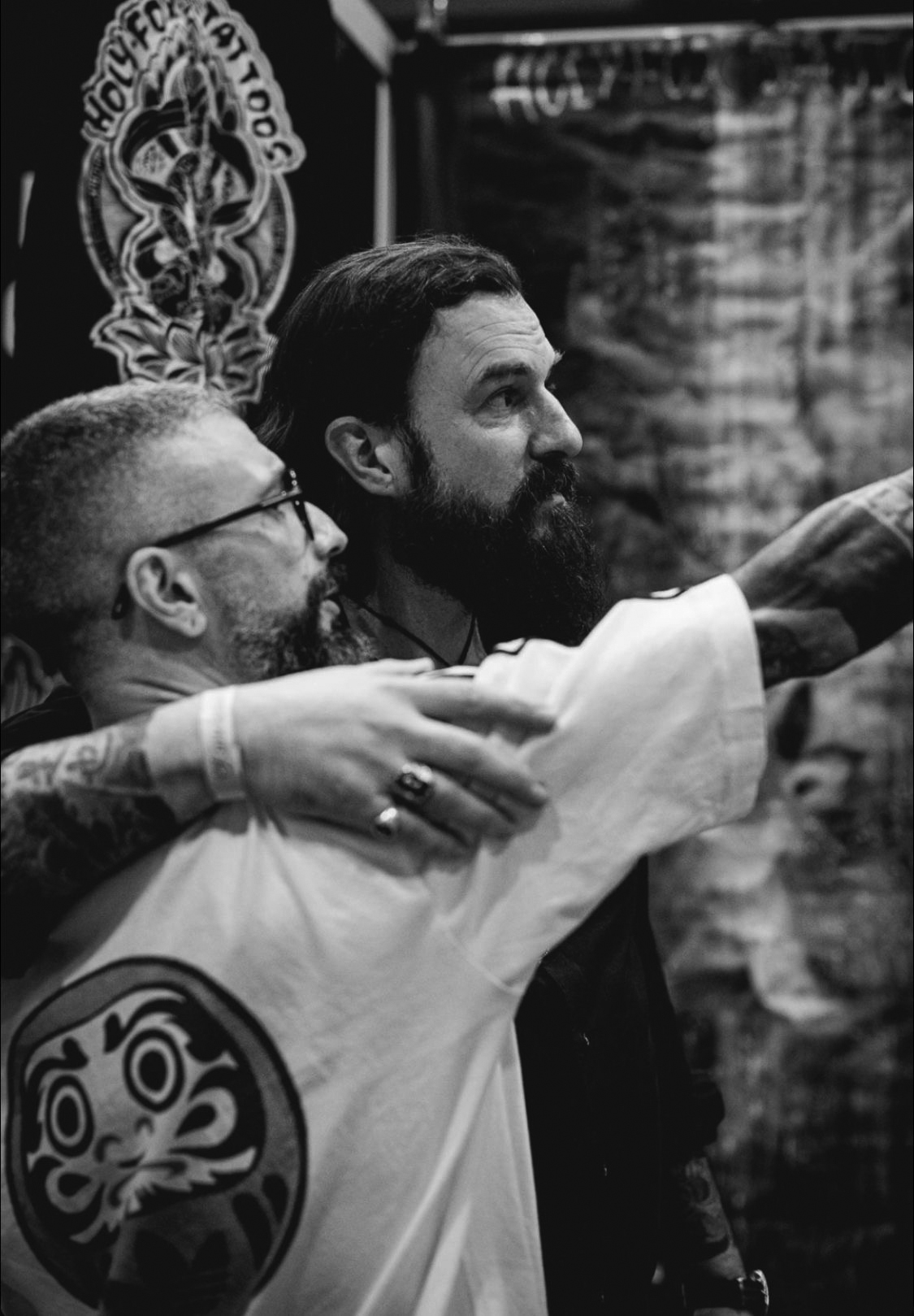
Indeed, building a community based on a love of tattooing and shared experiences is at the core of these podcasts. Even if they seek to educate the audience, they do so from a point of view where the audience members are viewed as having their own important personal experiences with tattoos.
Truiano and Mesa elaborated on the fact that just as they seek to educate their audience, they often learn a lot themselves, both from interactions with guests on their show and with their audience, even changing some of their own stances along the way. Indeed, even if interaction with the audience is often indirect, a connection is built with the audience through a shared interest in the topics discussed.
Building on this point, the “Beneath the Skin” and “Eden Pod” hosts also spoke of their desire to educate audiences, not because they want to change people’s opinions, but rather, to put the information out there and enrich their knowledge regarding tattoos.
As Lodder and O’Mahony also explained, they do not seek to change people’s minds; their main goal is to engage the minds of the audience by presenting them with knowledge they might not have been privy to, hoping it will provoke their curiosity and critical thinking. However, they also hope some of their knowledge might dispel some myths, misunderstandings, and misconceptions regarding tattoo culture and other aspects of tattooing.
The knowledge made available to a wider audience in the tattoo world is also a big part of how a more cohesive tattoo community is formed, and how industry-wide improvements can be made with more consistency and greater benefit to all. Someone could be sitting across the world and learn something that might enrich and change their cultural position in, or perceptions of, the tattoo world, or help them improve their own tattooing.
Tattoo podcasts are a platform for sharing knowledge, experiences, and culture while building community. Whether artists, researchers, or enthusiasts, they allow tattoo insiders to easily create content focused on what matters most to them, from comedy and entertainment to education and academic discussions. These podcasts help broaden audiences’ understanding, challenge viewpoints, and promote self-education. By connecting listeners to a global tattoo community, they foster greater cohesion in both culture and industry, potentially making the tattoo world more accessible and inclusive.
Editor's Picks
Tattooed and Trusted
Breaking barriers surrounding inked bodies in medical and academic spaces.
Are You a Tattooed Person?
Sociologists explore the difference between having a tattoo and being a tattooed person—unpacking identity, meaning, and connection to tattoo culture.

